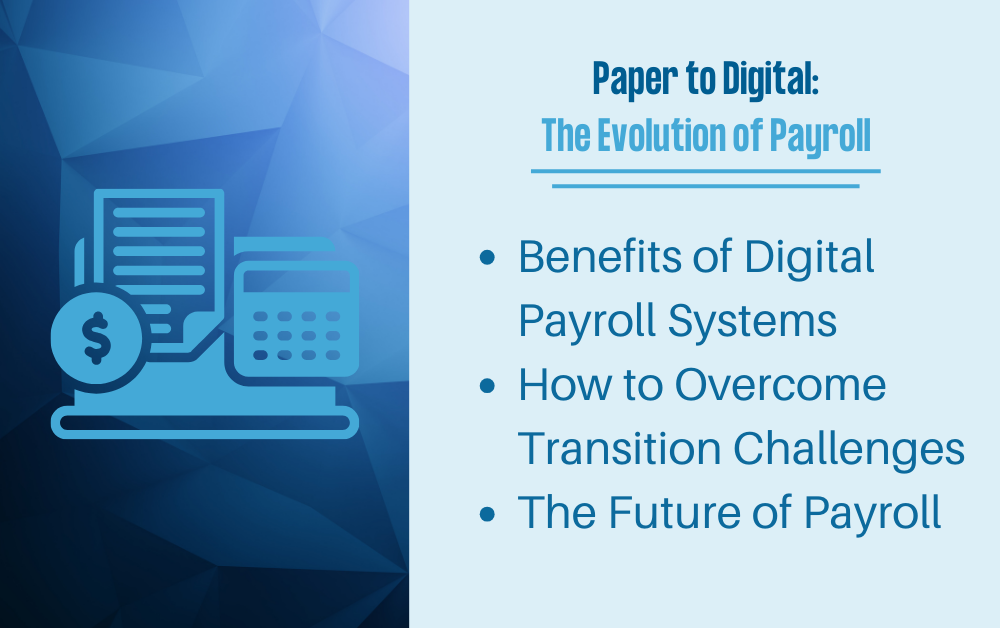The journey of payroll processing from paper-based systems to digital platforms marks a significant evolution in the business world. This shift from paper to digital has transformed how companies manage their payroll, bringing efficiency, accuracy, and convenience to the forefront. In this post, we’ll explore this transition, its benefits, and why embracing digital payroll systems is a game-changer for businesses.
The Traditional Paper-Based Payroll System:
In the past, payroll was a tedious, paper-heavy process. It involved manual calculations, physical timesheets, and paper checks. This method was not only time-consuming but also prone to errors and inefficiencies.

Transitioning from Paper to Digital:
The shift from paper to digital payroll systems began as technology advanced. Businesses started to recognize the limitations of paper-based systems and the potential of digital solutions to streamline payroll processes.
Benefits of Digital Payroll Systems:
- Increased Efficiency: Digital systems automate many aspects of payroll, reducing the time spent on calculations and data entry.
- Enhanced Accuracy: Automation minimizes human errors, ensuring employees are paid correctly and on time.
- Better Compliance: Digital payroll systems are updated with the latest tax laws and regulations, helping businesses stay compliant.
- Eco-Friendly Approach: Moving from paper to digital reduces paper waste, contributing to environmental sustainability.
- Easy Access and Storage: Digital records are easily accessible and don’t require physical storage space.
- Improved Security: Digital platforms often have robust security measures to protect sensitive payroll data.
Challenges in Transitioning from Paper to Digital:
Despite the benefits, the transition from paper to digital payroll systems can be challenging. It requires a change in mindset, training for employees, and sometimes an initial investment in technology.
How to Overcome Transition Challenges:
- Plan and Strategize: Develop a clear plan for the transition, including timelines and milestones.
- Choose the Right System: Select a digital payroll system that fits your business needs and is user-friendly.
- Train Your Team: Invest in training your staff to ensure they are comfortable with the new system.
- Ensure Data Security: Implement security protocols to protect sensitive payroll information.
- Seek Expert Assistance: Consider consulting with payroll service providers who can guide and assist in the transition process.
Case Studies: Success Stories of Transitioning from Paper to Digital:
- Small Business Success: A small retail company transitioned from paper to digital payroll, resulting in a 50% reduction in payroll processing time and significant cost savings.
- Large Corporation Efficiency: A multinational corporation adopted a digital payroll system, which streamlined global payroll processes and enhanced compliance across different countries.

The Future of Payroll: Digital and Beyond:
The future of payroll goes beyond just transitioning from paper to digital. Emerging technologies like cloud computing, artificial intelligence, and blockchain are set to further revolutionize payroll processes.
Conclusion:
The evolution from paper to digital payroll is a crucial step towards operational efficiency and accuracy. Embracing this change ensures your business stays compliant and ready for the future. At BCM Payroll, we understand the nuances of this transition. Our expertise and tailored solutions can guide and support your business through every step of moving from paper to digital, ensuring a seamless and secure shift. Trust BCM Payroll to be your partner in this transformative journey, helping you unlock the full potential of digital payroll systems for your business.

